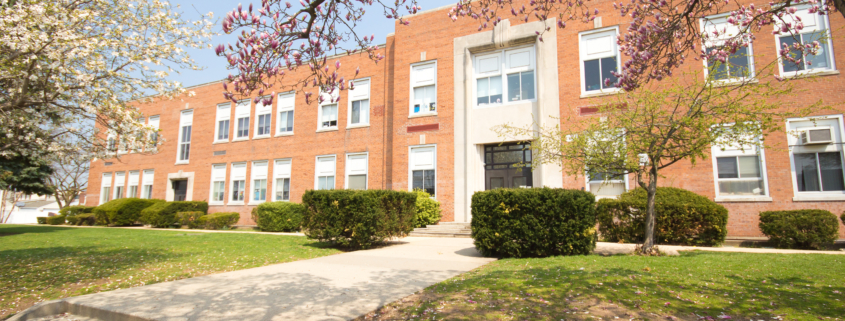Sample Newman Society Resources to Strengthen, Defend Catholic Identity
Editor’s Note: The article below is included in the forthcoming spring 2021 edition of the Newman Society’s Our Catholic Mission magazine.
The time is now for Catholic educators to ensure that all policies are in order and all practices consistently uphold a strong Catholic identity. The Cardinal Newman Society wants to help.
For years, the Newman Society has been crafting strong Catholic standards and guidance related to policies in key aspects of Catholic education, from the classroom to the athletic field. Policies should clearly explain moral expectations for employees and students and show how they are rooted in Catholic teaching.
The Newman Society’s work draws directly from the many magisterial documents on Catholic education, and we rely on input from a large number of expert reviewers. Below are some of the New-man Society’s most popular resources. These can be found in their entirety online at NewmanSociety.org/OCM.
Protecting religious freedom
Catholic education nationwide faces serious threats from within and without, and too many schools and colleges are insufficiently prepared for the legal battles. Strong Catholic identity makes lawsuits less likely and allows for a vigorous defense of religious freedom in court. This topic is explored in these pieces:
- Maintain Schools’ Religious Character to Protect Religious Freedom
- Protecting Catholic Colleges from External Threats to Their Religious Liberty
When new and significant legal cases arise, the Newman Society keeps Catholic educators informed about their impact on Catholic education. Recently, we provided educators with insight about three Supreme Court rulings.
In Espinoza v. Montana Department of Revenue, the “Blaine amendments” in state constitutions were effectively nullified, ensuring that Catholic schools and colleges have equal access to public benefits. Caution is strongly urged to avoid entanglements that jeopardize the mission of Catholic education. More can be read in this piece:
In Our Lady of Guadalupe School v. Agnes Morrissey-Berru, it was decided that the “ministerial exception” can help protect Catholic education, but only if employee standards clearly require fidelity and religious duties for all positions and across the full curriculum. Institutions that compromise Catholic identity and have weak policies risk being left unprotected. There’s more information about which positions in Catholic schools might be covered under the “ministerial exception” here:
Finally, because of the potentially devastating ruling on sex discrimination in Bostock v. Clayton County, Georgia, we make several recommendations to Catholic schools and colleges, and point to their legal defenses in this piece:
At the end of the day, schools and colleges need to be prepared to go to court and demonstrate their uncompromised commitment to their Catholic mission.
Human sexuality policies
Increasingly, Catholic dioceses, schools and colleges are embroiled in controversy and conflict over sexual matters. To prevent such problems, these situations require pastoral sensitivity and the guidance of clear institutional policies that both uphold and explain the obligations of faithful Catholic education.
The following standards, one of the Newman Society’s most requested resources, can be applied to nearly every aspect of a Catholic school or college:
The following papers can be helpful in implementing human sexuality policies when it comes to the area of school admissions:
- Working with Nontraditional Families in Catholic Schools
- Not All Families Are a Good Fit for Catholic Schools
Finally, gender ideology poses a grave threat to sports, and Catholic schools and colleges should be prepared to oppose it and advance a Catholic understanding of athletics. This document can help:
Moral standards for employees
It is necessity to ensure that all employees faithfully serve the mission of Catholic education. Clear and consistent contracts and policies are the best means of upholding Catholic identity while avoiding employee disputes and lawsuits.
There should be no confusion about which faith and moral transgressions can result in disciplinary action or firing. The Newman Society provides Catholic educators with a review of moral standards for Catholic school employment documents and a compilation of sample policies from dioceses around the country:
- Faith and Morals Language in Catholic School Teacher Employment Documents: Best Practices Brief
- Morality Language in Catholic School Teacher Employment Documents: Exemplar Statements, Language, and Contract Samples
Moral standards should apply to educators in every subject area, not just religion teachers, and to support staff, coaches and other employees. This is true especially in elementary and secondary education, when impressionable children rely on good role models and moral guides for their formation. You can read more about that in this paper:
The community in a school “is not simply a sociological grouping but also a formative and educative means for student development.” Our own Dr. Denise Donohue took to discussing the importance of community in a Catholic school, and how it can be nurtured and safeguarded in this piece:
Catholic school superintendents, principals, college presidents and other education leaders would do well to immediately dive more deeply into the areas highlighted above. By devoting some time to the task, Catholic educators can update their policies to reflect their Catholic mission more accurately.
The goal is for Catholic education to be clearly Catholic from the top to the bottom, inside and out. This is good for students in Catholic education and for a school or college’s defense of its religious freedom.
The resources listed here are just a small sample of the wealth of material available for education leaders from the Newman Society. You can view these resources and more at: NewmanSociety.org/OCM

